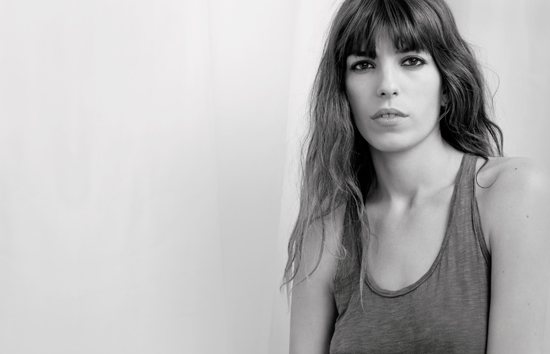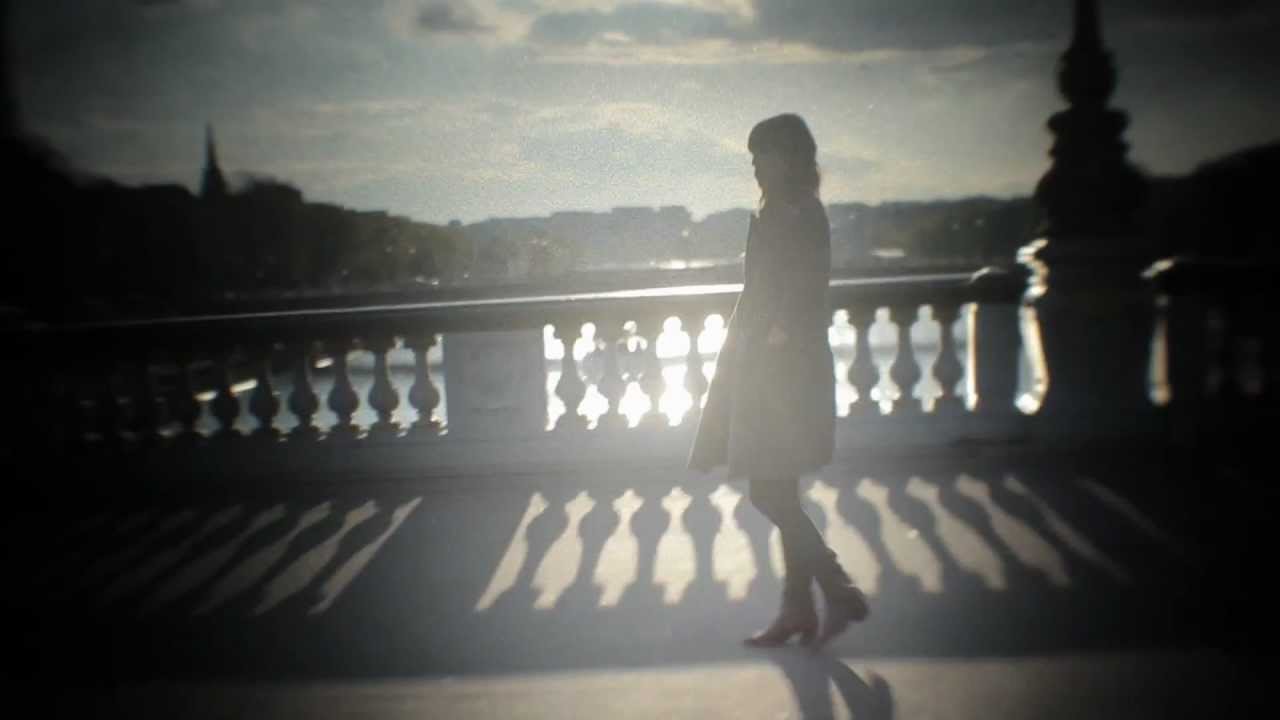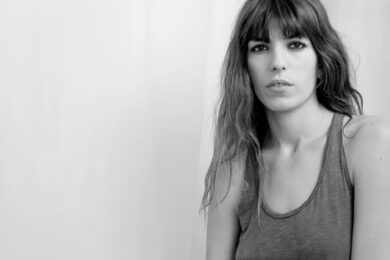Lou Doillon’s rapid ascent to the top of the pop game in her native France, off the back of last year’s Places album, has been as spectacular as it is surprising, and nobody seems more astonished than the model/actress-turned-singer herself. The success of Places – an album of enigmatic folk pop, marked out by Doillon’s delightfully smoky vocals – culminated in a best female performer of the year at Les Victoires de la Musique – the French equivalent of the Brits – after the record had first gone gold and then platinum. "I was sure Francoise Hardy was going to win," Doillon remembers. "So it was a great surprise. I was dancing on the street and jumping three feet in the air. People were saying ‘that’s not very French of you’, and I said ‘fuck it, we only live once and I’m really happy about this’.
"It was a big thing over there, because it’s the first time in thirty years that someone’s won it with their debut, and now there are lots of people saying – because the French love to be pissed off – ‘how could they give it to her, because she sings in English?’" She laughs heartily. "You want to be understood, and the French press might hate you for it, but when people say ‘why English?’ I’m like ‘I like the idea that people can sing along with me in India and Canada and elsewhere’."
Those not necessarily paying too much attention could be forgiven for expecting success to be a foregone conclusion for Doillon. She is, after all, the daughter of Jane Birkin and the half sister of Charlotte Gainsbourg. Coming from French musical royalty as she does, her making music would seem to make as much sense to the casual observer as, say, Martin Amis writing novels. Initially, however, Doillon felt more comfortable plying the other family trade by pursuing a career in movies – her father is the film director Jacques Doillon, and her sister and mother are both actresses – and modelling.
She resisted the urge to make an album until she was 30, a ripe age to start a musical career. It was her friend, the musician and singer Étienne Daho, who convinced her of her talent and coaxed her into the studio – to award-winning effect, it would transpire. So why the initial reluctance? Reclining in an east London boozer, Doillon explodes with laughter.
"Give me a break!" she says. "This is the stuff they kill you for!"
Even before the catwalk or the 80 or so movies Doillon made, she was already famous, so in a sense the knives were out before she was born – indeed, she refers to herself as "media bait". Equally, to be a newcomer in a field that many family members had already excelled in would likely to be daunting – and of course, though not exactly the elephant in the room, there’s that other Gainsbourg to consider too, the artistic stick that not only she, but the rest of France, beats itself with.
"I’m quite tough, and I’ve paid a lot for not being Serge’s daughter and all that bullshit in France," Doillon admits, "which was tough for a long time. The first label that wanted to sign me said ‘oh, wouldn’t it be wonderful to do a duet, maybe a French song?’ and I said ‘that would be great, I could maybe sing ‘Je t’aime (Moi non plus)’ in [Montparnasse] cemetery and I could lie down on his tomb and maybe I could get Charlotte to sing…’ and they were going for it! And I’m like, ‘are you fucking kidding me?’ They were giddy and I’m thinking ‘are you out of your fucking minds?’"
Places took shape during downtime between movies. Doillon began playing music at home, and songs began to form – in English. "I wanted to keep it simple," she explains. "In France, especially with Gainsbourg and all that – and being his kind of half-daughter – there’s so much complication where everyone writes with rhyming dictionaries and puts in references to poetry and so on, that I felt the only way I could live with it was to be bluntly honest. As soon as I tried being smart I didn’t like it. English has this wonderful capacity to be blurry. In French if I write one sentence you instantly know if you’re talking about a man or a woman, whereas in English you have more freedom."
Places opens with the track ‘I.C.U’, and a rhyming couplet of "I wake up some mornings / thank God, not as often as I used to". That’s a smart lyric, I suggest. "I love lyrics and poetry that don’t make sense, and sadly everything I write makes sense. I write like a little woman," she says disparagingly of herself. "I have to write about my own experience. I try writing as a hobo and then I think ‘who the fuck do you think you are?’"
About five years ago, Doillon’s mother Jane Birkin released her first songs on the album L’enfant d’hiver. I wonder whether it took her so long partly because Serge had been her partner, and John Barry also. "All the people I know in my family have always been on stage like actresses trying to please," Doillon replies. "My mother would shake going on stage because Serge was there to say whether that was right or wrong – ‘don’t do it like this’ or ‘like that’ – a bit like an actress where you’re there to please a man. It’s true that for me it’s a lot of fun, and it’s also disturbing, that I’m my own chief and nobody tells me what to do. My musicians turn around and ask me how they were, so suddenly I’m in this manly position, and it really cracks me up and I really enjoy it.
"I get into little arguments with my mother. She’s like ‘how was the performance?’ and I’m like ‘it was great, I fucked this and that up but it was great’. And she’ll say ‘oh, it was great, and you can say it was great?’ And I’m like: ‘what do you want me to say? Should I look guilty and say ‘oh I don’t know? I’m sorry I’m taking a lot of pleasure…’ which is a word I’m not even allowed to say! Because she has such Christian guilt, the word ‘pleasure’ is banned!" She cackles demonically at this point and I imagine she might be kidding, or at least half kidding.
The reason Doillon thinks she’s been so well-received at home is due to "the honesty of being a bit confused as a woman" – the sort of honesty, she says, that you’d find in say Bobbie Gentry, but not a Rihanna or a Britney Spears. It seems somehow inevitable that, from that point, conversation turns to Amy Winehouse. "The look was quite nonexistent. Even the fucking beehive, you didn’t see that, you saw her eyes. It wasn’t even a look, it seemed pretty normal on her – I see so many mini-Amys and I think ‘you’re missing the point’. She was a great romantic and a lover. Life in England seems very, very tough for people like her, and the people who don’t die seem to run away. There’s something weird about London – I don’t want to be funny but doesn’t it seem odd that all your superstars either flee or die? Maybe there something to learn from that?"
Having grown up with her family in the spotlight, it must be useful for Doillon, I suggest, having an insight – being able to spot the pitfalls and the smoke and mirrors. "The movie business for me – because I know every trick – has lost a lot of magic for me," she replies. "Funnily enough with music, I’ve always been around it, I’ve always been obsessed by it, every lover I’ve ever had was a musician. I saw my mother have her career, I saw Serge’s career, Charlotte’s career, the father of my son’s career, my cousin’s career… I saw all the varieties of how you could do music – in pubs, or my mother doing it in big halls and superstars coming around, and Charlotte doing it with massive superstars… and at the same time how everyone uses you, everyone tries to fuck you over one way or the other, and how you can lose yourself.
"So it’s true that’s an advantage," she reflects, "but I guess if I was 20 and didn’t know any of that, I could end up doing some very stupid things just because people think they have good ideas. It’s not out of unkindness, they’re just crazy."
Lou Doillon’s Places is out now. She plays at London’s Queen Elizabeth Hall this Thursday, 6th June




